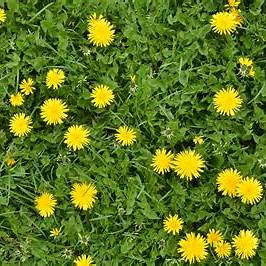May Lawn Care in New Jersey: Tackling Crabgrass, Dandelions, and More

As May unfolds in New Jersey, homeowners are greeted with the vibrant green of spring lawns. However, this beauty can be marred by the emergence of common weeds and lawn issues. Let's explore the top concerns for NJ lawns this month and how to address them effectively.
1. Crabgrass: The Sneaky Invader
Crabgrass is a notorious summer annual weed that begins to germinate when soil temperatures consistently reach 55°F. In New Jersey, this typically occurs in mid to late May. If pre-emergent herbicides weren't applied earlier in the season, you might start noticing these unwelcome guests.
DIY Solution:
-
Early Prevention: Apply a pre-emergent herbicide in early spring to prevent crabgrass seeds from germinating.
-
Post-Emergent Control: If crabgrass has already appeared, use a post-emergent herbicide specifically designed for crabgrass control.
-
Mowing Tips: Maintain a mowing height of 3-4 inches. Taller grass shades the soil, making it harder for crabgrass to establish.
2. Dandelions: Bright but Unwanted
Dandelions are among the most common broadleaf weeds in NJ lawns. Their bright yellow flowers quickly turn into seed heads, spreading rapidly if not controlled.
DIY Solution:
-
Manual Removal: Pull dandelions by hand, ensuring you remove the entire taproot to prevent regrowth.
-
Selective Herbicides: Use a broadleaf herbicide that targets dandelions without harming your grass.
-
Regular Maintenance: A thick, healthy lawn can outcompete dandelions. Regular mowing and fertilization help maintain lawn density.
3. Lawn Diseases: The Hidden Threat
May's warm and humid conditions can foster fungal diseases like brown patch and dollar spot. These diseases often manifest as discolored patches or spots on your lawn.
DIY Solution:
-
Proper Watering: Water early in the morning to allow grass blades to dry during the day, reducing fungal growth.
-
Fertilization: Avoid excessive nitrogen fertilization, which can promote disease.
-
Aeration: Aerate your lawn to improve air circulation and reduce compaction.
4. Mowing and Maintenance: Best Practices
Regular mowing is essential, but improper techniques can harm your lawn.
DIY Tips:
-
Mowing Height: Keep your mower blade at a height of 3-4 inches to promote deep root growth.
-
Blade Sharpness: Ensure mower blades are sharp to make clean cuts, reducing stress on grass.
-
Mowing Frequency: Mow regularly, removing no more than one-third of the grass blade at a time.
5. Professional Help: When to Call the Experts
If lawn issues persist despite your best efforts, it might be time to consult professionals. For homeowners in Essex, Morris, Passaic, or Bergen counties, we recommend Go Organic Lawn Care. Their commitment to excellent customer service and organic solutions makes them a top choice for maintaining a healthy lawn.
Final Thoughts:
Maintaining a lush, green lawn in New Jersey requires vigilance, especially in May when weeds and diseases are most active. By implementing these DIY solutions and seeking professional assistance when necessary, you can enjoy a beautiful lawn throughout the season.